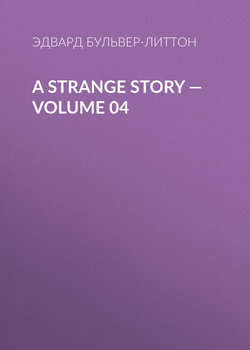Читать книгу A Strange Story — Volume 04 - Эдвард Джордж Бульвер-Литтон, Эдвард Бульвер-Литтон - Страница 2
CHAPTER XXXVI
ОглавлениеThe belief prevalent in the town ascribed the murder of Sir Philip to the violence of some vulgar robber, probably not an inhabitant of L——. Mr. Vigors did not favour that belief. He intimated an opinion, which seemed extravagant and groundless, that Sir Philip had been murdered, for the sake not of the missing purse, but of the missing casket. It was currently believed that the solemn magistrate had consulted one of his pretended clairvoyants, and that this impostor had gulled him with assurances, to which he attached a credit that perverted into egregiously absurd directions his characteristic activity and zeal.
Be that as it may, the coroner's inquest closed without casting any light on so mysterious a tragedy.
What were my own conjectures I scarcely dared to admit,—I certainly could not venture to utter them; but my suspicions centred upon Margrave. That for some reason or other he had cause to dread Sir Philip's presence in L—— was clear, even to my reason. And how could my reason reject all the influences which had been brought to bear on my imagination, whether by the scene in the museum or my conversation with the deceased? But it was impossible to act on such suspicions,—impossible even to confide them. Could I have told to any man the effect produced on me in the museum, he would have considered me a liar or a madman. And in Sir Philip's accusations against Margrave, there was nothing tangible,—nothing that could bear repetition. Those accusations, if analyzed, vanished into air. What did they imply?—that Margrave was a magician, a monstrous prodigy, a creature exceptional to the ordinary conditions of humanity. Would the most reckless of mortals have ventured to bring against the worst of characters such a charge, on the authority of a deceased witness, and to found on evidence so fantastic the awful accusation of murder? But of all men, certainly I—a sober, practical physician—was the last whom the public could excuse for such incredible implications; and certainly, of all men, the last against whom any suspicion of heinous crime would be readily entertained was that joyous youth in whose sunny aspect life and conscience alike seemed to keep careless holiday. But I could not overcome, nor did I attempt to reason against, the horror akin to detestation, that had succeeded to the fascinating attraction by which Margrave had before conciliated a liking founded rather on admiration than esteem.
In order to avoid his visits I kept away from the study in which I had habitually spent my mornings, and to which he had been accustomed to so ready an access; and if he called at the front door, I directed my servant to tell him that I was either from home or engaged. He did attempt for the first few days to visit me as before, but when my intention to shun him became thus manifest, desisted naturally enough, as any other man so pointedly repelled would have done.
I abstained from all those houses in which I was likely to meet him, and went my professional round of visits in a close carriage, so that I might not be accosted by him in his walks.
One morning, a very few days after Strahan had shown me Sir Philip Derval's letter, I received a note from my old college acquaintance, stating that he was going to Derval Court that afternoon; that he should take with him the memoir which he had found, and begging me to visit him at his new home the next day, and commence my inspection of the manuscript. I consented eagerly.
That morning, on going my round, my carriage passed by another drawn up to the pavement, and I recognized the figure of Margrave standing beside the vehicle, and talking to some one seated within it. I looked back, as my own carriage whirled rapidly by, and saw with uneasiness and alarm that it was Richard Strahan to whom Margrave was thus familiarly addressing himself. How had the two made acquaintance?
Was it not an outrage on Sir Philip Derval's memory, that the heir he had selected should be thus apparently intimate with the man whom he had so sternly denounced? I became still more impatient to read the memoir: in all probability it would give such explanations with respect to Margrave's antecedents, as, if not sufficing to criminate him of legal offences, would at least effectually terminate any acquaintance between Sir Philip's successor and himself.
All my thoughts were, however, diverted to channels of far deeper interest even than those in which my mind had of late been so tumultuously whirled along, when, on returning home, I found a note from Mrs. Ashleigh. She and Lilian had just come back to L——, sooner than she had led me to anticipate. Lilian had not seemed quite well the last day or two, and had been anxious to return.
